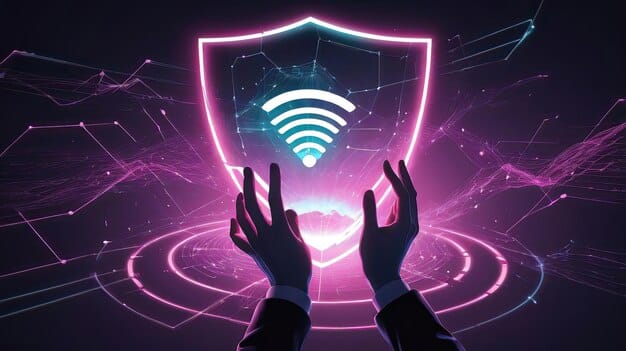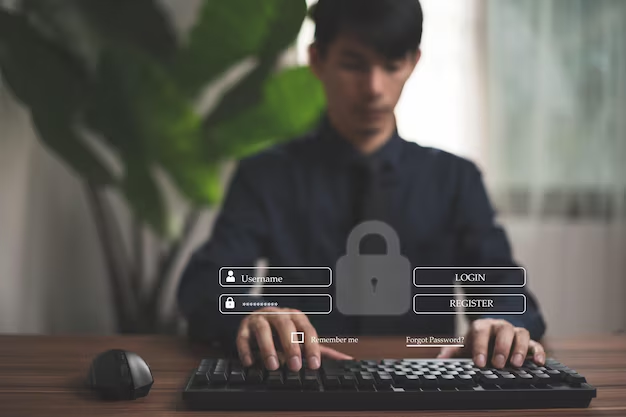In today’s digital age, protecting your personal data has never been more important. With cyber threats evolving constantly, implementing strong cybersecurity measures is crucial to safeguard sensitive information from hackers, identity theft, and other malicious activities. Below are some of the best cybersecurity tips to help protect your data.
1. Use Strong, Unique Passwords
Your password is your first line of defense against unauthorized access. Avoid using obvious passwords like “123456” or “password.” Instead, create long, complex passwords that include a mix of uppercase and lowercase letters, numbers, and special characters. Additionally, never reuse passwords across different sites. Consider using a password manager to generate and store strong, unique passwords for every account.
2. Enable Two-Factor Authentication (2FA)
Two-factor authentication adds an extra layer of security by requiring not just your password but also a second form of verification. This could be a one-time code sent to your phone or an authentication app. Enabling 2FA on your accounts helps protect them even if your password is compromised.
3. Keep Software and Devices Updated
Cybercriminals often exploit security vulnerabilities in outdated software. Always ensure that your operating system, browsers, and any other applications are updated regularly. Enable automatic updates whenever possible to ensure you are protected from the latest threats.
4. Use Antivirus and Anti-Malware Software
Having a reliable antivirus and anti-malware software installed on your devices is essential for detecting and removing harmful software. These programs can help prevent malware infections and other cyber threats, providing an additional layer of defense.
5. Be Cautious of Phishing Scams
Phishing scams are deceptive attempts to obtain sensitive information by impersonating legitimate organizations. Be wary of unsolicited emails, phone calls, or text messages that ask for personal information. Always verify the legitimacy of requests by contacting the organization directly through official channels. Avoid clicking on links or downloading attachments from unknown senders.
6. Secure Your Wi-Fi Network

Ensure that your Wi-Fi network is password-protected and encrypted. Use WPA3 encryption if possible, as it provides the highest level of security for wireless networks. Avoid using the default Wi-Fi password that came with your router and change it to something strong and unique.
7. Backup Your Data
Regularly back up your data to an external hard drive or cloud storage service. In the event of a ransomware attack or hardware failure, having a backup ensures that your data remains safe and recoverable.
8. Practice Safe Browsing
Be cautious when browsing the internet. Avoid visiting untrustworthy websites and refrain from downloading files or software from unknown sources. Use a virtual private network (VPN) to encrypt your internet traffic and protect your online privacy.
9. Limit Data Sharing on Social Media
Cybercriminals can gather personal information from your social media profiles to conduct targeted attacks. Review your privacy settings and limit the amount of personal data you share online. Avoid sharing sensitive information such as your address, phone number, or travel plans.
10. Monitor Your Accounts and Credit
Regularly review your bank and credit card statements for unauthorized transactions. You can also use credit monitoring services to detect any suspicious activity and protect against identity theft.
Conclusion
By following these cybersecurity tips, you can significantly reduce the risk of falling victim to cybercrime and protect your personal data. The digital landscape is constantly evolving, and staying proactive about your cybersecurity is essential. Protect your passwords, stay cautious online, and use the necessary tools to ensure your data remains safe.
FAQs
Q1: What is two-factor authentication (2FA)?
A1: Two-factor authentication (2FA) is a security measure that requires two forms of verification before granting access to an account. Typically, this involves something you know (your password) and something you have (such as a code sent to your phone or an authentication app).
Q2: How can I recognize a phishing scam?
A2: Phishing scams often involve unsolicited emails, phone calls, or text messages that ask for sensitive information. They may contain urgent messages or promises of rewards. Always verify the source before clicking on links or providing personal details.
Q3: Why is it important to update my software?
A3: Software updates often include security patches that fix vulnerabilities. Cybercriminals frequently exploit outdated software to gain access to devices and data. Keeping your software up to date ensures you are protected against known threats.
Q4: What is the best way to protect my Wi-Fi network?
A4: To protect your Wi-Fi network, use a strong password and enable encryption (WPA3 if possible). Avoid using default passwords and ensure your network is private, not open to others.
Q5: Should I use a VPN?
A5: Yes, a VPN (Virtual Private Network) encrypts your internet connection, making it more secure and private. It is especially useful when browsing on public Wi-Fi networks, as it helps protect your data from potential hackers.


